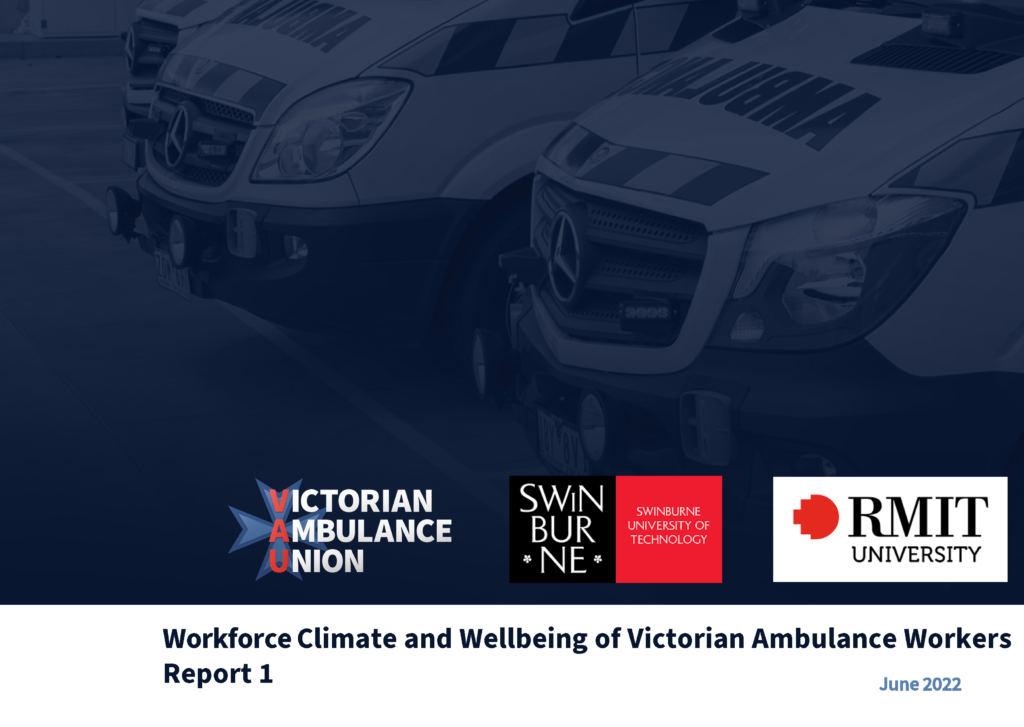News
1st July, 2022
Second Survey on Workplace Climate and Well-being of Victorian Ambulance Workers 2021 – Volume 1
This volume deals with workload, psychological safety, burnout, resilience, job satisfaction, intention to leave the profession and mental health and wellbeing (Volume 2 will be released at a later date). The VAU encourages everyone working in the ambulance industry to read the report, the results of which clearly reflect what our members tell us daily.
As people will be aware the Victorian Ambulance Union Incorporated (VAU) has a partnership with Swinburne and RMIT Universities to conduct workforce research into the ambulance industry in Victoria. The first round of research was released in December 2020.
We are pleased to present the Second Survey on Workplace Climate and Well-being of Victorian Ambulance Workers 2021 Volume 1. This volume deals with workload, psychological safety, burnout, resilience, job satisfaction, intention to leave the profession and mental health and wellbeing (Volume 2 will be released at a later date).

Key concerns include:
Burnout:
The report shows clearly that burnout amongst staff has never been higher with 76% (up from 59% in survey one) reporting that they were often or always worn out at the end of the working day. 55% (up from 31%) were often or always exhausted in the morning and 35% (up from 22%) stated they seldom have energy reserved for family and friends. This matches the exhaustion that members have reported working 10/14 rosters and the surge working arrangements still in place
Intention to leave the profession:
The new report reveals a massive decline in job satisfaction. 42% of employees said they were satisfied with their job, down from 62% in the first survey. 16% said they intend to seek new employment opportunities in the next year (up from 9%) and 45% (up from 29%) indicated they often think about quitting the profession. These findings indicate a change in attitude since the previous report and point to significant retention issues for highly skilled frontline health workers.
Psychological safety:
Another concerning finding is that 72% of members (up from 61%) believe that if they make a mistake, it will be held against them. There is genuine fear amongst members that they will be disciplined or even criticised publicly if a clinical error is made. One member stated, “high senior management has demoralised and humiliated me publicly causing nervousness and anxiety at work, with no care for wellbeing or how it will affect staff”.
Above all the report highlights the need for a strong workforce retention strategy. The VAU will continue to advocate for and work with employers and Government to build an experienced, healthy, and well supported ambulance workforce. Without significant improvement to ambulance working conditions including better rosters, manageable workload and a fairer, more supportive workplace, we face a mass exodus of our highly skilled health workforce.
The VAU would like to pass on our sincere thanks to Professor Peter Holland, Dr. Julian Vieceli and Dr. Lara Thynne from Swinburne University and Dr. Tse Leng Tham from RMIT University for their hard work in conducting this research. We would also like to sincerely like to thank our members who took the time to complete this survey.
In Solidarity.